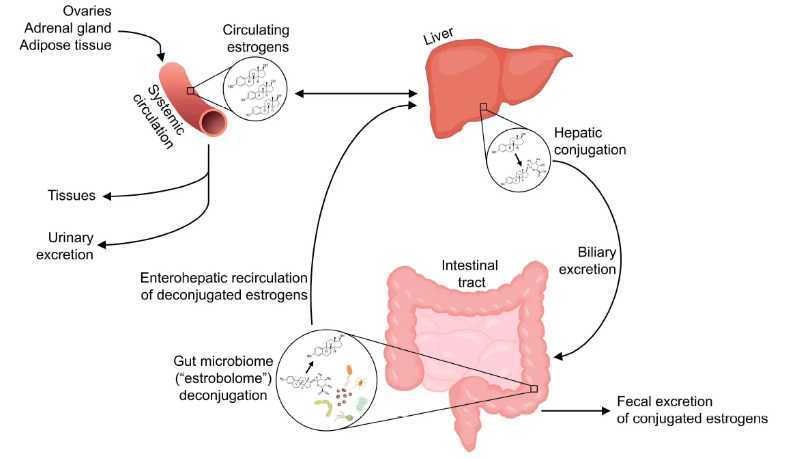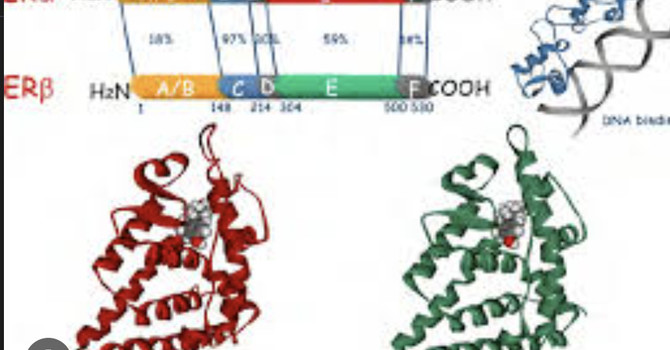
Menopause is a natural transition in a woman's life that brings about profound hormonal changes with wide-ranging effects on health. One area that is increasingly recognized for its importance during this phase is the gut microbiome—the complex community of microorganisms residing in the gastrointestinal tract. The gut microbiome is not only crucial for digestion and immune function but also plays a role in modulating hormone levels, including those affected by menopause. In this context, hormone replacement therapy (HRT) emerges as a pivotal treatment option, not just for symptom relief but also for its potential influence on the gut microbiome.
Hormonal Changes and the Gut Microbiome
The decline in estrogen and progesterone levels during menopause can lead to shifts in the gut microbiome's composition. These shifts may contribute to increased gut permeability, sometimes referred to as "leaky gut," and systemic inflammation, which are linked to a range of health issues1. Furthermore, the gut microbiome has a subset of bacteria known as the estrobolome, which is responsible for metabolizing estrogens. The estrobolome's function is crucial for maintaining hormonal balance, and its disruption during menopause can have significant health implications234.
The Role of Hormone Replacement Therapy
HRT has been traditionally used to manage menopausal symptoms such as hot flashes and mood swings. However, recent insights suggest that HRT may also affect the gut microbiome. By supplementing the body with estrogen, HRT could potentially restore a healthy balance of gut bacteria, which is altered during menopause567. This restoration may not only improve gastrointestinal health but also contribute to the overall well-being of menopausal women.
The Benefits of Compounded HRT
At our clinic, we specialize in compounded HRT formulations that are tailored to each woman's unique hormonal needs. Our compounded hormones are meticulously prepared without chemical preservatives, ensuring that our patients receive the purest form of therapy. This approach is crucial because preservatives and other additives can potentially disrupt the gut microbiome and contribute to inflammation and other health issues891011121314151617181920.Topical administration of HRT is another aspect of our personalized approach. This method of delivery can offer several advantages, including steady absorption and minimizing the impact on liver metabolism, which is particularly important for maintaining gut health.
Integrating Diet and Lifestyle with HRT
While HRT can significantly impact the gut microbiome and menopausal symptoms, it is most effective when combined with diet and lifestyle modifications. A diet rich in fiber from fruits and vegetables supports gut health by nourishing beneficial gut bacteria. Additionally, reducing sugar and processed food intake can help prevent dysbiosis and inflammation1.Regular exercise, including resistance training and high-intensity interval training (HIIT), not only helps maintain muscle mass and metabolic health but also positively influences the gut microbiome. Furthermore, adequate sleep and stress management are essential for maintaining a healthy gut microbiome and overall well-being during menopause4567.
Conclusion
Menopause is a complex process that affects various aspects of health, including the gut microbiome. At our clinic, we emphasize the importance of a tailored approach to HRT, using compounded hormones free of chemical preservatives and administered topically to optimize health outcomes. By integrating HRT with dietary and lifestyle strategies, we aim to support not only hormonal balance but also gut health, contributing to a smoother menopausal transition and improved quality of life for our patients.
Dr. Anat Sapan MD, specializing in peri/menopause care, advocates for a personalized approach combining Bioidentical Hormone Replacement Therapy with lifestyle strategies. Her telemedicine services in California, Florida and Illinois aim to help women overcome menopausal symptoms and enhance their quality of life.

Anat Sapan, MD
Contact Me



